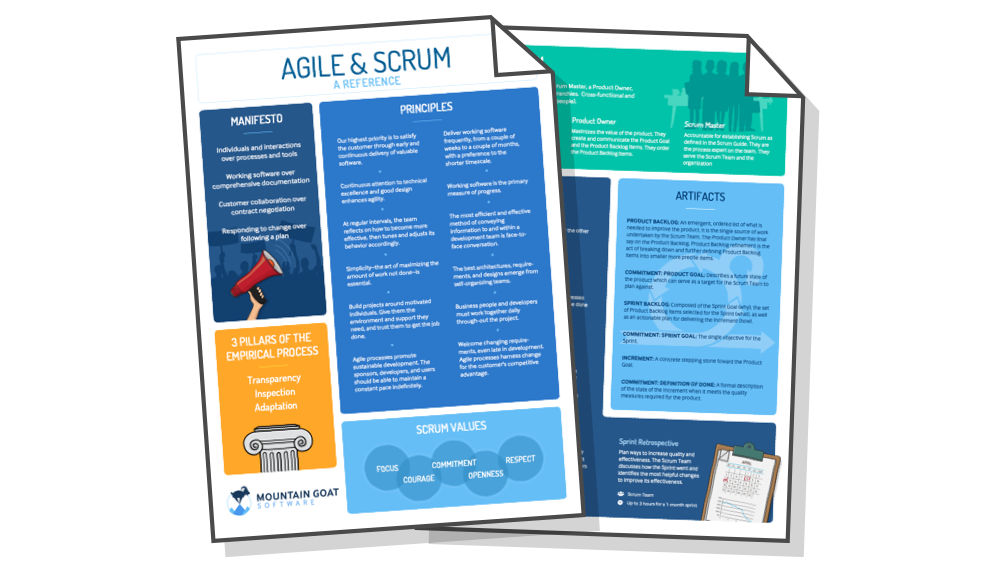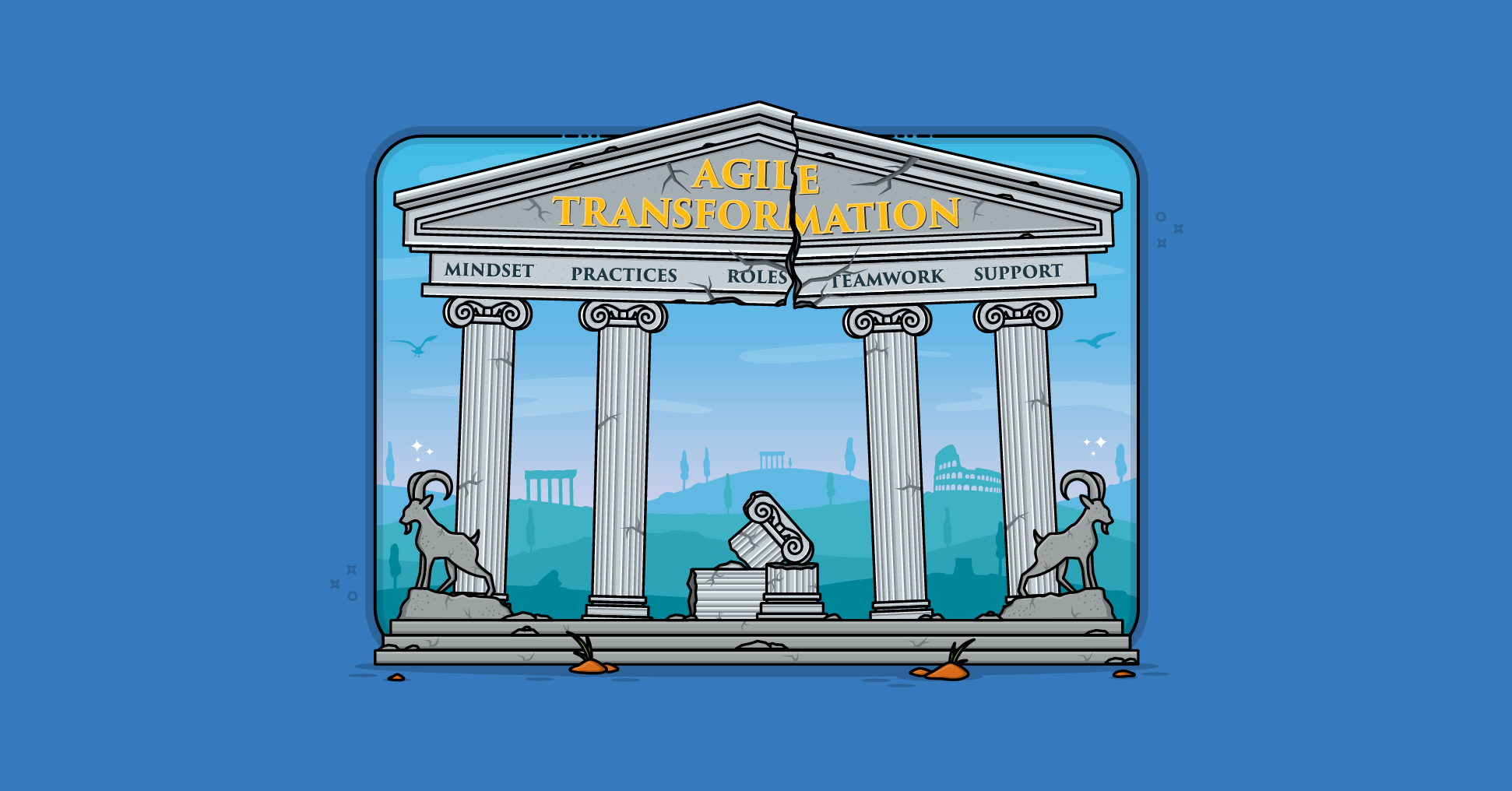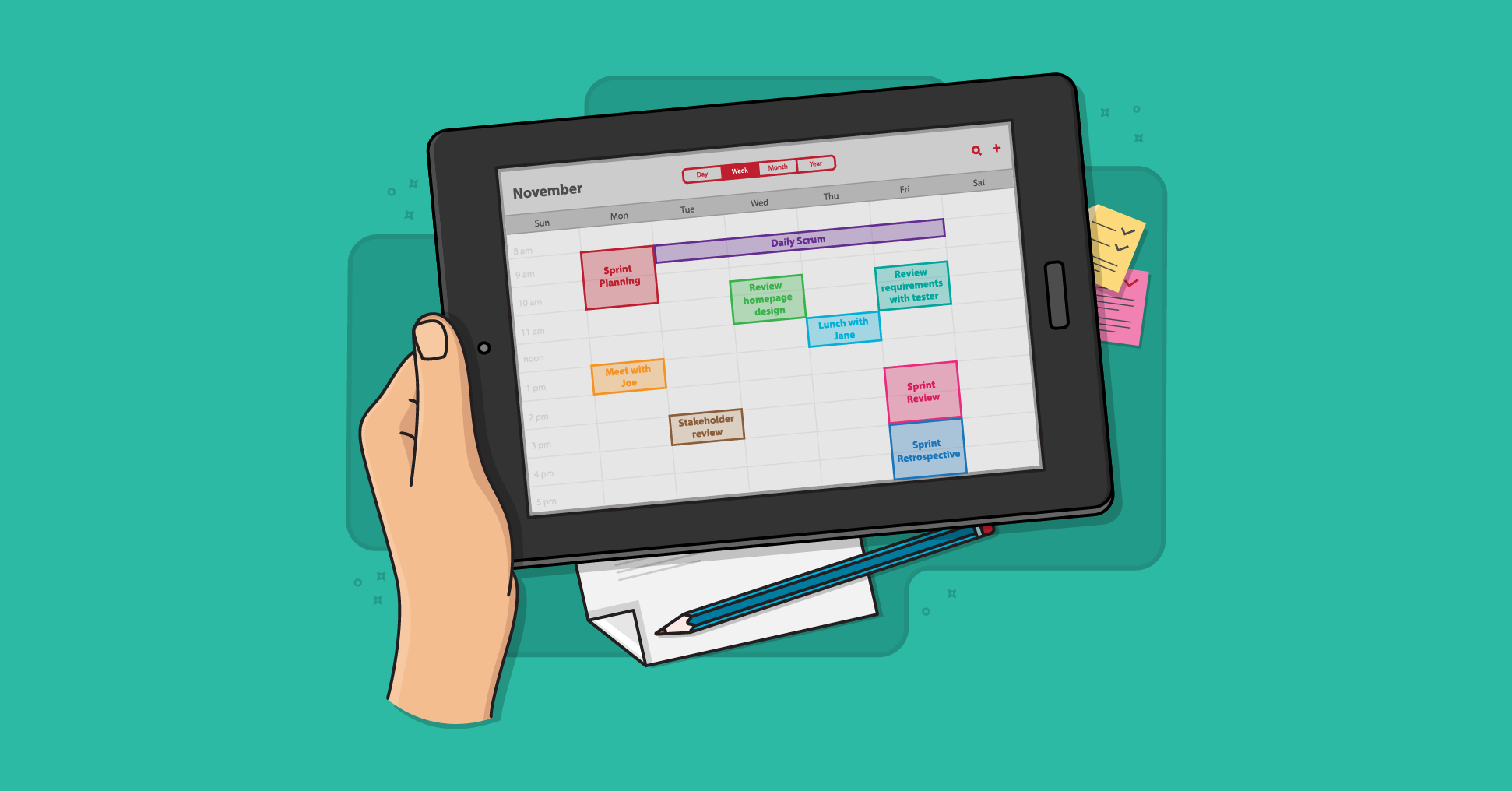It’s coming on Christmas. That time of year when I drop hints to my family about gifts I’d like.
And they give me socks instead.
My family should know me better than anyone. But since dropping hints doesn’t work with them, I’m going to assume it won’t work with others either. So on behalf of team members everywhere, I’m going to tell Scrum Masters, product owners, and managers a couple of things I’d like for Christmas. And I’ll be more explicit than dropping subtle hints. The last thing I need is more socks!
From My Scrum Master
There are two things I’d really appreciate from my Scrum Master.
More Focus on the Principles and Values of Agile and Scrum
It would be great if you could focus more on the principles and values of agile and Scrum rather than focusing just on having us adhere to the rules of Scrum.
As an example, it’s great to tell us a daily scrum has to be done in 15 minutes, but occasionally taking 20 minutes is really helpful for us. We understand that wouldn’t be good for everyone. And we don’t want to spend an hour.
But if everyone values the little extra depth we’re covering in those meetings, why do we have to rush through them?
Help us be aware of the rules but use the principles and values to help us do what’s best for us.
Rather than Telling Us What to Do, Try Selling Us on the Idea
Rather than telling us what to do, try selling us on the idea. You told us we were doing two-week sprints. That pissed us all off because we each wanted to do four-week sprints. And we doubted we could finish anything even in that amount of time.
But, I have to say it: You were right. And we all acknowledge that now.
But, wouldn’t it have been better if you could have sold us on the idea rather than told us it was what we were doing? When you sell rather than tell, it may take longer, but we become stronger supporters of the idea in the end.
From My Product Owner
We’ve come a long way since the last holiday season, Product Owner. Last year we didn’t invite you to retrospectives and didn’t allow you to participate in daily scrums. Since then, we’ve learned that the more we function as one whole team, the more successful we are.
Despite the progress we’ve made together, there are a couple of things I’d like to ask of you this year.
Your Time
We know you’re busy with work outside the team. But we really need more of your time. Or at least more access to you. Maybe we can set up a Slack channel where you promise to always respond to by the end of each day?
More Understanding of Why We’re Doing what We’re Doing
You seem to have a really solid grasp of where you want our product to evolve over the next few years. The more you can help get that in our heads, the better it will be for all of us.
A couple of good techniques I’ve seen for sharing your vision are:
- Write the press release we’d like to go out a few months from now. It’s not the real press release--it’s what we’d want people saying about us.
- Write a magazine or app store review we’d like to earn. Again, it’s not the real review. But it can be our shared vision of what we’d like said in a review.
Your Trust
When we tell you we need time to clean up something in the code or to “refactor” the code, it’s because something in the code is causing real problems.
It’s not like we’re asking to do something fun. We’re asking to do something equivalent to cleaning the garage. Please take the request seriously. We understand you can’t always let us clean something up the minute we ask, but please don’t take too long or the problem will get bigger.
From my Managers
I need you to understand I really enjoy working here. If I didn’t, I’d leave. Life is too short to work where work is always work and never fun. And so I’m here because I enjoy it. But here are a couple of things you could do that would really help.
Stop Trying to Measure My Productivity
Managers have been trying to measure the productivity of knowledge workers, like me, ever since Peter Drucker coined that term in 1959.
If no one has solved this challenge yet, you and I aren’t going to be the two to do it. Velocity doesn’t measure my productivity. And if you try, I’ll just gradual inflate my estimates.
Velocity will go up but my productivity will stay the same.
Do you want to know if my team or I are productive? Observe us. Talk to us. Talk to our customers.
What is productivity, anyway? We could develop more features faster if we stopped trying to build the right features. No one wants that.
Understand I Can Be as Agile as You’ll Let Me
Being agile isn’t something I can do on my own. I need your help. You don’t need to be fully agile yourself. But you and others in the company need to stop getting in our way.
For example, stop those meetings we have all too often to talk about and often estimate work that is way in the future and may not be needed anyway.
Get the Facilities group to move us onto one floor. I understand why half my country is in another country halfway around the world. But there’s no reason for my teammates here to be spread across two floors.
When you ask us to lock down a date and exactly what features will be delivered, you really hamstring our ability to be agile. Our options then become limited to things like working overtime, implementing just enough of some features, adding people, and cutting quality. When we try cutting quality, it sometimes works in the very short-term but always costs us more in the end.
So, you don’t need to be agile yourself. But you need to understand the ways in which your actions affect our ability to be agile.
Last update: July 11th, 2024









